
David Luna and Chuck Colton on the field. Photo by Brenda Verano
Unarmed, with an open heart and equipped with water and snacks, as well as with a full list of social and mental health services, David Luna and Chuck Colton spend their week driving to places across Los Angeles to assist and support unhoused individuals experiencing crises.
Luna and Colton, who work together three times a week, are part of the Crisis and Incident Response through Community-led Engagement (CIRCLE) program, an initiative available 24/7 that deploys a team of mental health professionals to address non-violent LAPD calls and referrals related to one of the most vulnerable groups of people in L.A.: homeless and unhoused individuals.
Within a couple of minutes, mental health professionals and individuals like Luna and Colton arrive at the scene to provide homeless individuals with the care and support they need, whether helping them with a mental health crisis, providing food and water, being clothed, reversing opioid-related overdoses, or simply having a person who is willing to listen and care.
After assessing the immediate needs, CIRCLE employees also support individuals in obtaining vital documents such as Social Security cards and IDs and referring individuals to mental and behavioral health services.
The program also provides services to help respond to calls involving loitering, well-being checks, noise disturbances, substance abuse issues and indecent exposure.

Luna and Colton inside CIRCLE offices in Little Tokyo, L.A. Photo by Brenda Verano
CIRCLE takes pride in the fact that many of the people helping homeless individuals are people with lived experience who have been system-impacted or who have been in the shoes of the people they are helping. For Luna and Colton, more than just providing services, the work they do is personal and from the heart.
Luna was once sentenced to 57 years in jail after committing a crime in the early 90s. At the time, the former gang member was wrongfully sentenced as an adult, even though he was a minor. The 42-year-old spent 25 years in jail before a California law passed that enabled former youth to seek early release (after 25 years) if they were wrongfully convicted as a youth.
“My worst day out here is still better than my best day in prison,” said Luna, who was released from jail in 2023. “I never thought I would be given the chance to get out in time to enjoy my life and give back to the community.”
Luna received training when he began working with CIRCLE in 2024, alongside Colton, who is now more than a colleague and consideres a friend and mentor. “It's a commitment to come out here in society. Every day that I wake up and I come into this job, I know I can change somebody's life in a positive manner, whether it's through the resources we offer or any type of interaction I have with them,” he said.
Also in the early 90s, Colton, a current LA CIRCLE mental health counselor, was homeless and spent his days in MacArthur Park. “I came to L.A. in the early 90s because I was addicted to drugs; that's what brought me down here,” Colton told CALÒ News. “After, I decided it was time to detox, so I detoxed out there. That was tough. In those times, there weren’t many places like today that support and help people struggling with drugs.”
After detox and still being homeless, Colton was able to get a job as a delivery man at a local print shop. He then began loading trucks at a warehouse, a job that allowed him to rent a room in L.A.
Wanting to further his career and support his son, Colton decided to attend a community college in San Dimas, CA, before transferring to Life Pacific University, where he obtained his bachelor's degree.
Soon after, he began working at the UCLA Health Child and Adolescent Psychiatry in the Resnick Neuropsychiatric Hospital as a mental health practitioner for 15 years before going to the California Hospital Medical Center, where he worked in the ER, specifically in the psych intakes.
He then applied to Urban Alchemy, the nonprofit organization behind CIRCLE. “I'm 56 years old now, and it was the first place I ever worked that made me feel accepted immediately. No one judged me,” he said.

Colton and Luna talking and providing services to a Latino man in Little Tokyo, LA. Photo by Brenda Verano
As a mental health counselor at CIRCLE, Colton is in charge of observing and assessing the behavior and mental health of the homeless people he sees throughout the day. “I talk to them and I listen, but I'm also assessing their behavior, speech and emotions. I pick up on all kinds of behavioral things too, such as picking, pacing or any other things that can be a sign of distress, anxiety or other mental health issues,” he said. “The most common diagnosis out there is PTSD or schizophrenia.”
Both Luna and Colton believe their past experiences help them build relationships and trust with the homeless people of L.A., as many shy away from police.
“It is important for me to have them see that if I was able to do it, they can do it as well,” Luna said. “Sometimes they don't believe me when I tell them what I went through, but it's true; I’ve been in some of their shoes.”
Luna also said taking this job has not just allowed him to help others but to also heal part of himself. “At times when we’re out in the field, I find myself getting very emotional because I sympathize with people and their experiences. I was hardened up [in jail] because you couldn't do that. Some people are preying on it, and being emotional is looked at as a weakness,” he said. “My emotional side comes out more and more every day when I engage people because I understand that it's a struggle.”
Kirkpatrick Tyler, Chief of Government and Community Affairs at Urban Alchemy, said he has seen the unmatched benefits of having CIRCLE staff that have lived experience or are returning citizens in the city. “They have the capacity to show true empathy to unhoused neighbors that may be in crises,” he said. “Many people in our teams have lived experience and many of them have been able to build a life and come out of homelessness, using the resources, tools and relationships that help them to become stably housed and that helps them connect with our unhoused neighbors better. They have the ability to de-escalate and evaluate situations because the goal is not to move unhoused people or shuffle them from one place to another. The goal is to engage with them and connect.”
In 2021, Urban Alchemy and the City of Los Angeles Mayor’s Office partnered to design the CIRCLE pilot and although it was not launched until 2022. Today the program has helped thousands of unhoused individuals.
CIRCLE was initially launched in Hollywood and Venice in 2022 and was then expanded to Downtown L.A., South Los Angeles and the San Fernando Valley.
The latest expansion was announced earlier this week on Monday by Mayor Bass, who said CIRCLE will also be serving other West Side communities, such as Oakwood, Mar Vista, Palms, Playa Vista, Playa Del Rey, Westchester, Manchester Square and Dockweiler Beach.

Mayor Karen Bass announcing the expansion of CIRCLE. Photo provided by Mayor Bass Communications Office
“We are responding to the mental health crisis with solutions that are long-term and sustainable,” said Bass before thanking Councilwoman Katy Yaroslavsky and Councilwoman Traci Park as well as U.S. Senator Alex Padilla and U.S. Representative Ted Lieu for securing funding to help make this expansion possible.
When it was first launched, the city hoped that CIRCLE could support the LAPD by taking non-violent 911 calls from the multi-billion organization, which has been losing officers in the last couple of years.
On Monday, Bass said CIRCLE helps divert non-emergency calls away from the LAPD, which oftentimes has limited resources and does not have the right equipment to get to the roots of what a homeless person might need. “We are freeing up our LAPD officers to fight crime. Our work does not stop here. We will continue working on this important issue and continue to make our city safer,” she said.
Colton said some of the dispatch requests come directly from LAPD officers, who often patrol the streets and identify someone who can use CIRCLE resources. LAPD’s “non-emergency dispatch” option also transfers calls to CIRCLE and public access through the non-emergency line at 1-877-275-5273.
In the last fiscal year, more than 14,000 incidents were diverted to CIRCLE, and CIRCLE teams placed hundreds of individuals into interim housing and reconnected individuals back to their families. Bass also said that CIRCLE assisted more than 1,600 individuals in obtaining vital documents such as Social Security cards and IDs and referred more than 1,000 individuals to mental and behavioral health services and reversed opioid-related overdoses.
Tyler said that CIRCLE was conceived immediately following the murder of George Floyd by former Minneapolis police officer Derek Chauvin.
“The goal was to develop a comprehensive, unarmed community-based response model specifically to serve our unhoused neighbors. Throughout the country, we have a lot of communities that are struggling to find remedies to support our unhoused neighbors, including our Black and Latino communities,” he told CALÒ News. “Oftentimes the only response that we have seen people have when it comes to an incident regarding a homeless person is to call law enforcement, and we have seen and they have said it themselves that they don't necessarily have the resources, tools or capacity to respond to those very important calls.”

CIRCLE cars. Photo courtesy of Mayor Bass Communications Office.
CIRCLE teams participate in rigorous training that prepares them to respond to crises and assist homeless people. Training touches on things such as trauma-informed care, de-escalation and harm reduction, crisis intervention, LGBTQ and transitional-age youth cultural competency, self-care and wellness, CPR and first aid, among others.
“CIRCLE teams are not just going to move or force homeless people to go anywhere. We're not going to call the police on anyone but we're there to work with you to figure out how we can best support and serve you,” Tyler said.
The latest data by the Los Angeles Homeless Service Authority (LAHSA) showed there were a total of 75,312 homeless people across L.A. County (equaling a 0.3% decrease compared with the previous year) and 45,252 in the City of L.A. (a reduction of 2.2% from the previous year).
Despite the improvements in the overall numbers of the homeless population in the county, the Latino homeless population is still disproportionately large. According to LAHSA’s report, Latinos made up the largest percentage of homeless individuals (43%). They were followed by Black people (31%) and whites (29%).
With the increasing number of Latinos falling into homelessness, CIRCLE also provides multilingual services and Spanish-speaking personnel. “We make sure to have documentation that is in Spanish, but also that we have resources that do not exclude people because of their documentation status,” Tyler said.
CIRCLE program operates under the Mayor’s Office of Community Safety, which was created by Mayor Bass to prevent crime and violence through community-based strategies.
The public can access CIRCLE through the non-emergency line at 1-877-275-5273 or 877-ASK- LAPD. Select the “non-emergency dispatch” option.

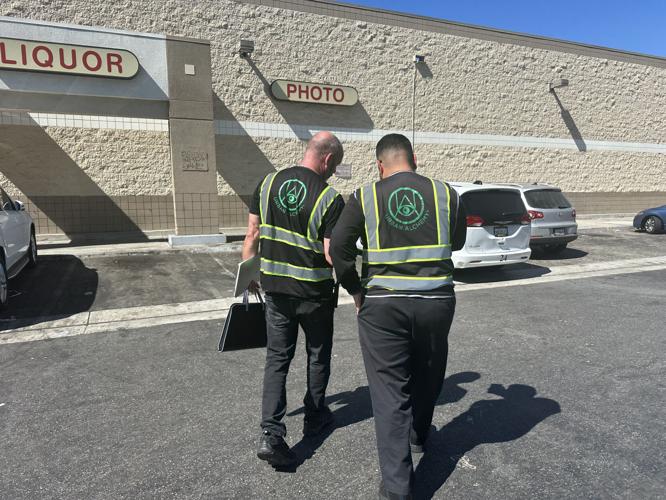
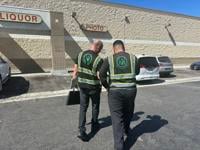
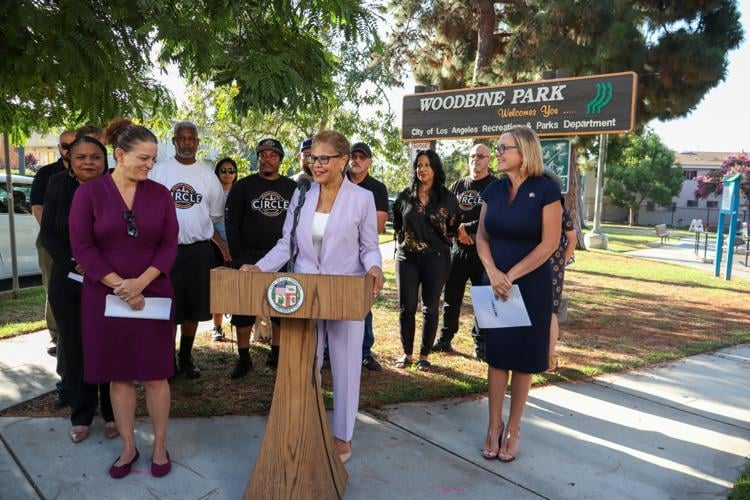
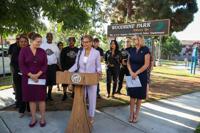
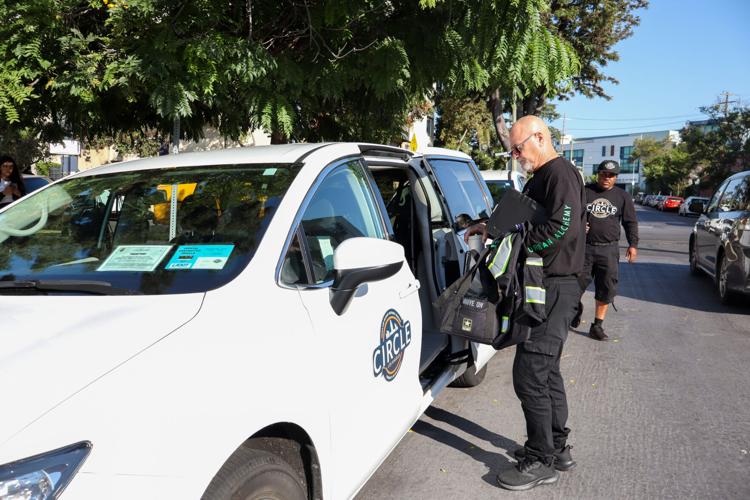
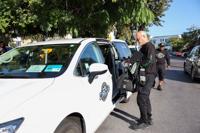
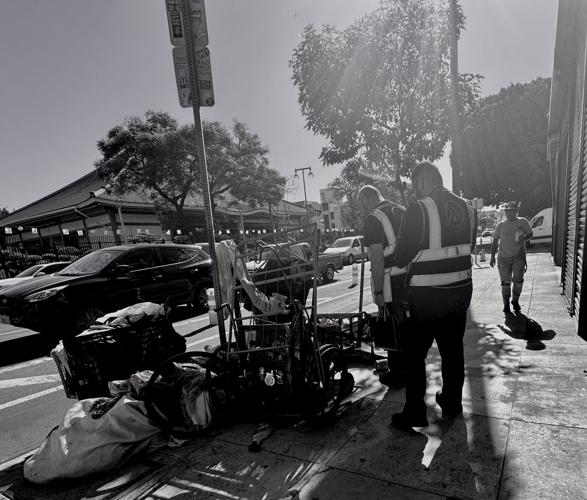
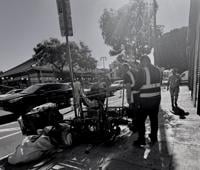
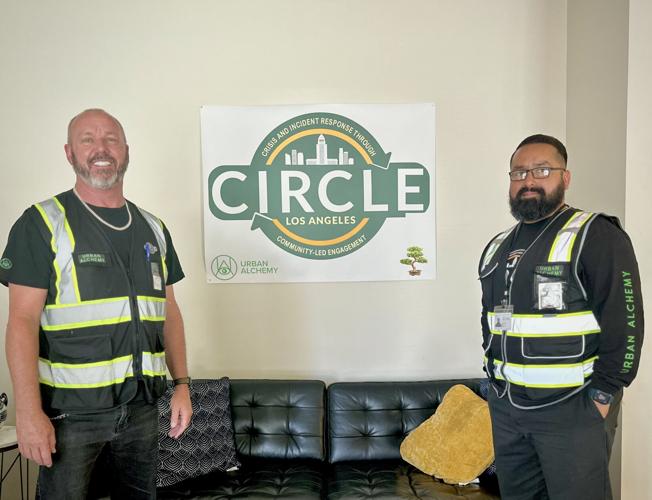
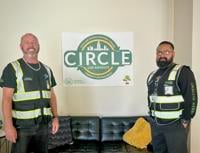

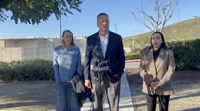

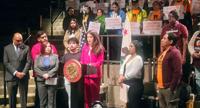

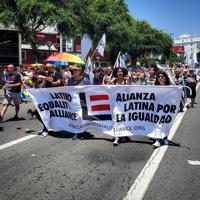

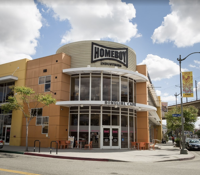
(0) comments
Welcome to the discussion.
Log In
Keep it Clean. Please avoid obscene, vulgar, lewd, racist or sexually-oriented language.
PLEASE TURN OFF YOUR CAPS LOCK.
Don't Threaten. Threats of harming another person will not be tolerated.
Be Truthful. Don't knowingly lie about anyone or anything.
Be Nice. No racism, sexism or any sort of -ism that is degrading to another person.
Be Proactive. Use the 'Report' link on each comment to let us know of abusive posts.
Share with Us. We'd love to hear eyewitness accounts, the history behind an article.